Contents
i Posthuman Ecologies
iii Posthuman Ecologies
Complexity and Process
after Deleuze
Edited by
Rosi Braidotti and Simone Bignall

iv Published by Rowman & Littlefield International Ltd
6 Tinworth Street, London SE11 5AL, United Kingdom
www.rowmaninternational.com
Rowman & Littlefield International Ltd.is an affiliate of Rowman & Littlefield
4501 Forbes Boulevard, Suite 200, Lanham, Maryland 20706, USA
With additional offices in Boulder, New York, Toronto (Canada), and Plymouth (UK)
www.rowman.com
Selection and editorial matter Rosi Braidotti and Simone Bignall 2019
Copyright in individual chapters is held by the respective chapter authors.
All rights reserved . No part of this book may be reproduced in any form or by any electronic or mechanical means, including information storage and retrieval systems, without written permission from the publisher, except by a reviewer who may quote passages in a review.
British Library Cataloguing in Publication Data
A catalogue record for this book is available from the British Library
ISBN: HB 978-1-7866-0822-2
PB 978-1-7866-0823-9
Library of Congress Cataloging-in-Publication Data Is Available
ISBN 978-1-78660-822-2 (cloth: alk. paper)
ISBN 978-1-78660-823-9 (pbk: alk. paper)
ISBN 978-1-78660-824-6 (electronic)
 The paper used in this publication meets the minimum requirements of American National Standard for Information SciencesPermanence of Paper for Printed Library Materials, ANSI/NISO Z39.48-1992.
The paper used in this publication meets the minimum requirements of American National Standard for Information SciencesPermanence of Paper for Printed Library Materials, ANSI/NISO Z39.48-1992.
Printed in the United States of America
v Contents
Simone Bignall and Rosi Braidotti
Iris van der Tuin
Jussi Parikka
Andrej Radman
Elizabeth de Freitas
James Williams
Sean Bowden
Suzanne McCullagh
vi
Simone Bignall and Daryle Rigney
Thomas Nail
Gregory Flaxman
Jon Roffe
Edward Mussawir
Myra J. Hird and Kathryn Yusoff
vii List of Figures
ix Acknowledgements
Viewed from a Deleuzian perspective, knowledge-production is a multiple and collective affair that emerges alongside the creative act of composition when conceptual elements are drawn together into novel combinations. We sincerely thank everyone who has contributed to this book as a complex assemblage of parts. Together we have created a loosely bound and mobile system of ideas for understanding the posthuman condition. In diverse renditions, the chapters situate posthumanist concepts transversally across fields of enquiry or in practices of disciplinary encounter, to describe an interactive ecology without closure or fixity. The outcome is not an ending, but provocative of further beginnings, future thoughts: new formations of knowledge for worlds yet to come.
We are especially grateful to Natalie Linh Bolderston and Isobel Cowper-Coles at Rowman and Littlefield International; their good advice and encouragement continually lightened for us the burden of the editorial process. Sincere thanks to Gry Ulstein and Evelien Geerts for their editorial and administrative assistance. We thank all the chapter authors for their participation, and for their ever-willingness to accommodate our suggestions and requests. We owe special thanks to Jussi Parikka, Iris van der Tuin and James Williams, for enduring a longer-than-expected haul to the finish line.
An earlier version of Jussi Parikkas chapter was published as Cartographies of Environmental Arts in The Midden , edited by Jenni Nurmenniemi and Tracey Warr and published by Garret Publications in 2018. We are grateful for the permission generously granted by Garret Publications to reprint a revised version of this work. Parikkas chapter references works of art by Helen Hunter, Tuula Nrhinen, Elena Mazzi & Sara Tirelli, Mirko Nikoli, and Nabb+Teeri. We thank the artists for allowing us to include images of their work. The image by Helena Hunter appears courtesy of the Natural x History Museum, London. All other images in Parikkas chapter are used by kind permission of the curators of the Frontiers in Retreat project as part of the Helsinki International Artist Programme.
Chapter 1
Posthuman Systems
Simone Bignall and Rosi Braidotti
The reclamation of diverse human agencies and accountabilities in the context of faceless phenomena of exploitation and inhuman(e) processes of production in late or cognitive capitalismand perhaps also the potential redemption of humanity in the era of the Anthropocenesuggests there is an urgent need for new thinking about the differential nature of human influences in complex interactional systems, and about the nature of such systems and of agency within them, when such phenomena are conceived in nonanthropocentric ways. Indeed, the question of what human-actioned systems would look like beyond anthropocentrism haunts a range of contemporary enquiries into the nature of the diverse phenomena that interact in complex affective ecologies. How can human thought adequately conceive nonhuman temporality and spatiality? What are the nature, value and impact of nonhumanist productivity in natural, social and economic systems? What is a posthuman system of language, or of perception and subjectivity? How would a posthuman sensibility transform legal, political and educational systems? When it conceives subjectivity apart from intentionality or integrated moral selfhood directed actively towards discrete end purposes, can posthumanism offer an adequate framework for theorising responsiveness in complex interactive ecologies?
Taken together, the contributions to this volume advance our understanding of the new transdisciplinary knowledge systems emerging today, as traditional academic disciplines transform and blend to accommodate and reflect posthuman paradigms. The change of focus is both thematic and methodological, traversing concepts of geology, biology, power, law, economy, technology, learning, animality, communality and creativity. The chapters describe for us core elements of, or possibilities for, posthuman life and alternative ways of producing knowledge. The posthuman convergence rests upon and coproduces a vital materialist method that is illustrated throughout this volume. It approaches differences as modulations within a common matter, linked in a relational political economy that is framed by relations of power as both restrictive and empowering. This is no flat ontology, but rather embedded and embodied material perspectivism at work in addressing real-life issues.
Viewing these emergent knowledge formations as Deleuzian systems, whose processes are complex, relational, nonlinear, heterogeneous and heterogenetic, enables a clearer vision of the three ecologiesenvironmental, socioeconomic and subjectiveof the posthuman condition. This is at once a planetary consequence of the era of the Anthropocene, and a culturally and biologically differential experience, inflected by diverse materialities and vitalities. In turn, the understanding thus generated enables an ethological understanding of how knowledge may be put to use towards an affirmative posthumanist ethics that responds to trenchant inequalities, exacerbated now by cognitive capitalism. And this achievement, for us, refocuses the true purpose of knowledge: not to control, nor merely to describe the world; but to transform it for the betterment of all.
Notes
. Bonta and Protevi 2004.

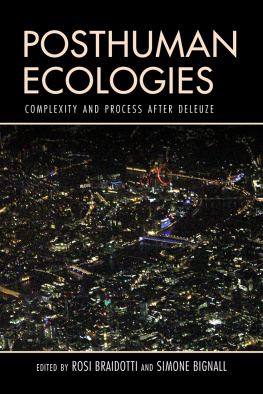
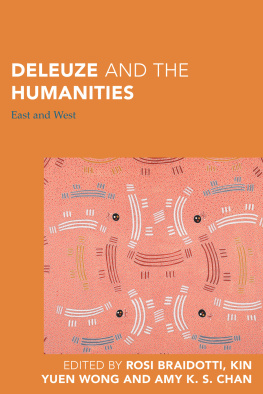


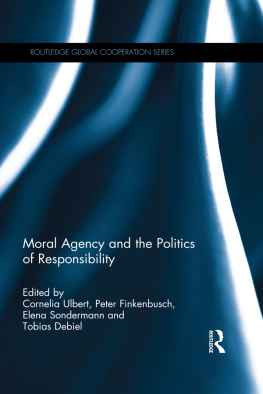
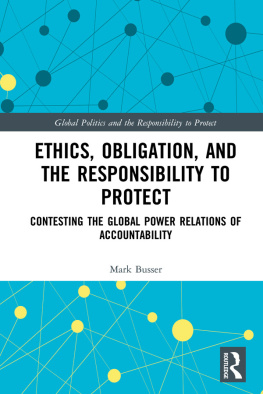
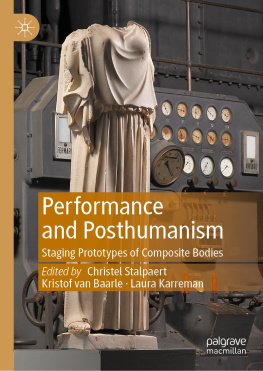
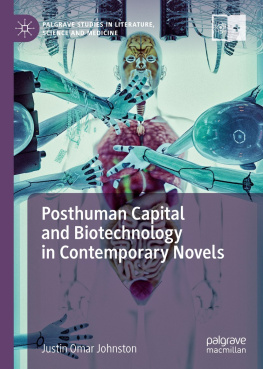
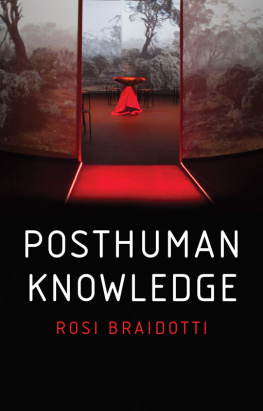
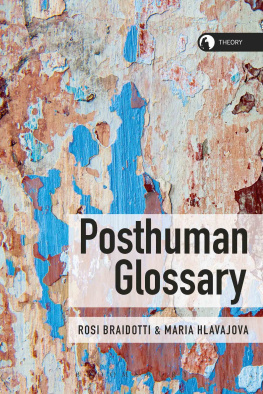
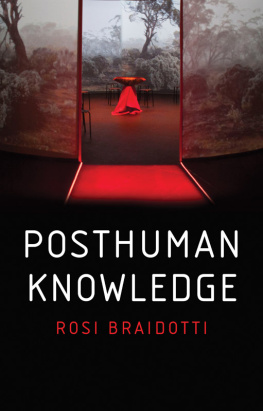


 The paper used in this publication meets the minimum requirements of American National Standard for Information SciencesPermanence of Paper for Printed Library Materials, ANSI/NISO Z39.48-1992.
The paper used in this publication meets the minimum requirements of American National Standard for Information SciencesPermanence of Paper for Printed Library Materials, ANSI/NISO Z39.48-1992.